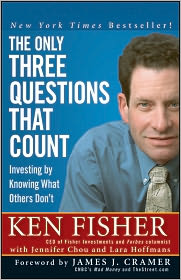Company Overview
GEI Industrial Systems Ltd is a Bhopal headquartered company that was started in 1970 and operates mainly in the industrial heat transfer segment. It was formed in 1970 as General Engineering Industries. Originally, it was formed as an ancillary unit of BHEL. The company is engaged in machining, fabrication activities and specializing in manufacture of air-cooled heat exchangers and finned tubes. It has a technical tie-up with Birwelco, UK, for design and performance guarantee of the products to be manufactured by the company. Its group companies are GEI Godavari Engineering, GEI Foods Pvt Ltd and GEI FHM Consultatnts.
GEI's client list includes BHEL, Tata Electric Company, HPCL, ONGC, Bharat Pumps and Compressors, IPCL (Baroda), Reliance Industries, Toyo Engineering, UHDE KTI, Mangalore Refineries, Davy Power Gas, Chemtex, etc.
Main Business
GEI Industrial Systems Ltd is a leader in Heat Transfer Technology . GEI is currently engaged in design engineering and specialized manufacture of Aircooled heat exchangers and Aircooled heat condensers in which it has a monopoly. The products manufactured by GEl find application in Power Generations, Oil-Gas Production, Gas Processing, Oil Petroleum Refining and Petrochemicals.The Company has also moved into design, engineering, manufacturing, installation and commissioning of extended surface heat transfer equipment and systems.
- Air cooled steam condenser
- Air cooled heat exchanger
- Finned Tubes
- EPC projects
GEI has inked a technical alliance with Innospin of Switzerland to produce air-cooled condensers for mega thermal power projects, especially supercritical power projects. As a result, the company, which is manufacturing and supplying condensers for up to 150 MW power projects, will get technical support for 660-MW and above rating power plants. The average ticket size for the air-cooled condenser order for a supercritical power project is Rs 125-Rs 150 crore.
With the tie-up, GEI is set to be the only Indian company that will be equipped to locally manufacture and supply air- cooled steam condensers to new and up-coming super-critical thermal power stations. This will enable the company to tap the huge opportunity offered by mega thermal power projects.
Financials
FY11 | FY10 | FY09 | FY08 | FY07 | |
Sales | 353.24 | 250.78 | 238.04 | 211.18 | 123.99 |
Other Income | 5.84 | 0.67 | 1.05 | -1.41 | 0.42 |
Op Profit | 62.94 | 36.06 | 32.95 | 33.22 | 18.63 |
PAT | 28.9 | 14.87 | 10.37 | 8.97 | 5.3 |
EPS | 17.39 | 9.22 | 7.16 | 6.18 | 3.88 |
OPM(%) | 17.82% | 14.38% | 13.84% | 15.73% | 15.03% |
NPM(%) | 8.18% | 5.93% | 4.36% | 4.25% | 4.27% |
Asset turnover(avg) | 0.87 | 1.15 | 1.70 | 1.89 | 1.58 |
RoA(%) | 7.15% | 6.82% | 7.41% | 8.04% | 6.75% |
Financial Leverage | 2.04 | 2.09 | 1.85 | 1.67 | 1.87 |
RoE(%) | 14.62% | 14.26% | 13.70% | 13.40% | 12.59% |
Investment Thesis
- GEI is the market leader in air cooled heat exchangers and condensers. With the scarcity of water in India and the world, more and more power plants are moving to air cooling as opposed to water cooled plants.
- Having realized the harmful side-effects of water used in condensing technology, indian states have started banning the use of water. Tamil Nadu, Chattisgarh and Rajasthan have already banned water-cooled condensers.
- Huge investments slated in India in the power and oil & gas sector
- Maintenance cost of Air Cooled units is 25% of those of Water Cooled Systems
- In house finned tube manufacturing to reduce operating expenses
- Very strong order book. It stood at Rs.400 crores as on March31,2011.
- Insiders buying at a substantial premium to current market price. Promoters have granted warrants to themselves at a price of Rs 250 convertible within 18 months (from May 24, 2011). CMP was around 170-180 at the time. Banyan Tree (an Aditya Birla private equity fund) has been granted cumulative convertible preference (CCP) shares (each convertible at Rs 250 per share within 18 months of allotment).
- The company is increasing its capacity to manufacture air-cooled condenser or equivalent BoP equipment from 3,000 MW to 5,000 MW at a cost of Rs 105 crore. The capex is partly funded from the proceeds from issue of CCPs or warrants.
- The company expects consolidated net revenue of Rs 550 cr in Fy12.
Valuation
- Stable or improving margins – both at operating and net levels
- Current PE is 10 (at CMP of ~Rs.175)
- 3-year Sales growth has been 26.46%; 5-year Sales growth has been 25.03%
- 3-year PAT growth has been 41.04%; 5-year PAT growth has been 33.25%
- 3-year EPS growth as been 33.44%; 5-year EPS growth has been 26.92%
- Assuming a modest growth of 10%, FY12 EPS is expected to be around 19.1
- The table below gives the likely prices for the possible PE ratios.
FY11 | FY12E | |
PAT | 28.9 | 31.79 |
EPS | 17.38 | 19.12 |
PE(pessimistic)=10 | 173.84 | 191.22 |
PE(most likely)=15 | 260.76 | 286.83 |
PE(optimistic)=18 | 312.91 | 344.20 |
Conclusion
- By March 2012, price expectation is Rs.190-340. The stock has been trading between a range of around 170 and 215-230 in the last one year.
- For a short term view, look to reduce positions around that 215 to 230 mark.
- For long term investors, look to hold for a good appreciation over a 1-2 year period.

